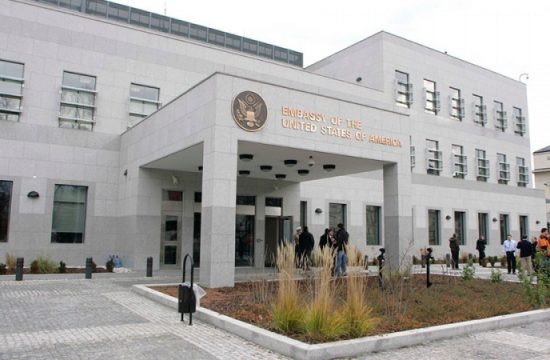
The pressure Bosnia’s judiciary was recently exposed to over a case involving top officials being suspects in an allegedly dubious procurement of Chinese ventilators is another example of how “captured” it is by political elites, legal advisor in Bosnia’s Constitutional Court, Sevima Terzic, told N1 on Thursday.
“Previous reports by various international organizations speak about the problems in the judiciary as a whole, and the study we are working on focuses on the captivity of the judiciary as an institution in a captured state,” said Terzic.
She exemplified this with the way the main Bosniak party in the country, the Party for Democratic Action (SDA), reacted to a high profile case in which one of its top officials was named a suspect.
Reports about the multi-million contract authorities in Bosnia’s Federation (FBiH) region granted to FH Srebrena Malina, a fruit processing company, to import 100 Chinese ventilators caused public outrage and prompted an investigation into the procurement procedure by police and prosecutors. Prosecutors later found that the ventilators are unfit for treating COVID-19.
FBiH Prime Minister and SDA member, Fadil Novalic, has meanwhile been named a suspect in the case, along with the former Head of the Civil Protection Authority, Fahrudin Solak, and the owner of Srebrena Malina, Fikret Hodzic.
SDA leader Bakir Izetbegovic told media that the detention of Novalic is part of “a continuous attack on Bosniaks” by Bosnia’s Chief Prosecutor, Gordana Tadic.
According to an SDA statement, the detention of Novalic is a “well-thought-up and coordinated activity which has elements of a coup,” adding that the goal is to eliminate the SDA official so that FBiH Deputy Prime Minister from the Croat Democratic Union (HDZ BiH), Jelka Milicevic, can take over.
Novalic is still a suspect in the case but he was not ordered into pre-trial detention.
“The fact that the suspects in this affair have not been remanded in custody should not be a reason for despair or enthusiasm. Commenting on how the Court resolved this issue, whether to order their detention or not, can be a significant source of influence on the Court,” Terzic explained.
She stressed that the SDA's demands to release Novalic from custody represents “completely inappropriate influence on the Prosecution and the Court.”
She argued that the officials named in the case are still suspects and that the court found that there is ground for suspicion that they committed those criminal activities, but that it also found that it could “achieve the same goal through other means,” adding that the European Convention on Human Rights demands that the judiciary must first consider the possibility of imposing milder measures be considered before detention is ordered.
“This is theoretically wonderful, but citizens are tired of it. They can not accept expert consideration as to how something should happen, precisely because of this situation in which they have long since lost faith in an independent judiciary,” she concluded.






